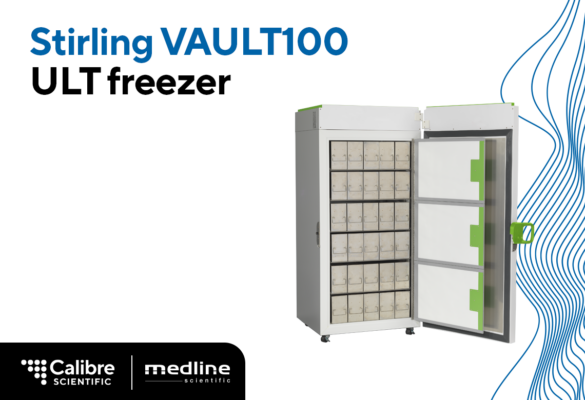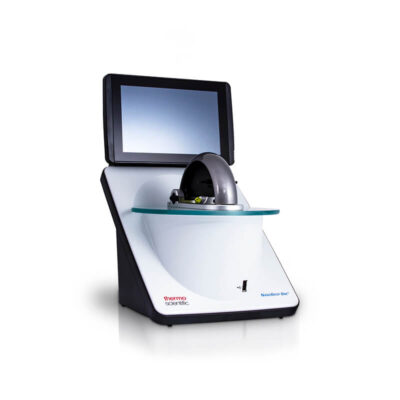Laboratories use lots of energy, far more than your average office [1]. However, many scientists are keen to reduce their carbon footprint and work more sustainably. The majority of laboratories will have at least one freezer and it will be running 24/7. However, there are still steps you can take to improve efficiency and reduce energy usage.
Below, we have included some basic sustainable lab practices that could help you to improve the running efficiency of your laboratory freezers and ULTs.
Maintenance
Firstly, defrost your freezers regularly and keep filters clean to improve efficiency. Also, remove excess ice from compartments and doors, so they can close properly. Make sure that the door seals are in good condition and free of ice. Damaged door seals can result in inefficiency, ice build-up and issues maintaining temperature stability.
Energy monitoring can highlight if any of your freezers are not running optimally. Your freezer might need a service or repair. Sometimes, energy monitors are available to borrow from within your organisation. Alternatively, laboratories can pay for energy monitoring as a bespoke service [2].

Temperature
Both the set temperature and the actual running temperature of your freezers are relevant when trying to reduce running costs within your laboratory.
If suitable for your storage requirements, consider increasing the set temperature of your laboratory ULTs from -80°C to -70°C. This should offer reduced energy consumption.
For your -20°C laboratory freezers, make sure that they are set and are accurately maintaining the interior temperature at -20°C rather than a lower temperature. Models offering accurate temperature setting can provide energy savings over time [3].
Within the laboratory, position your freezers away from heat sources and with enough space for effective ventilation.
Inventory
Keep your samples tidy! Use an inventory management system to minimise door-open times and the associated ice build-up. Being organised enables you to plan what you need to take out, from where, to reduce the amount of time that the door is open [4].
Colour-coded freezer racking can assist with sample organisation and also make it easier for two or more departments to share a single ULT freezer (rather than each running their own part-filled freezer). There are obvious cost and energy benefits to sharing laboratory equipment.
Regularly clear out samples and reagents so you are only storing what you need and place frequently used items nearer the front of your freezer.
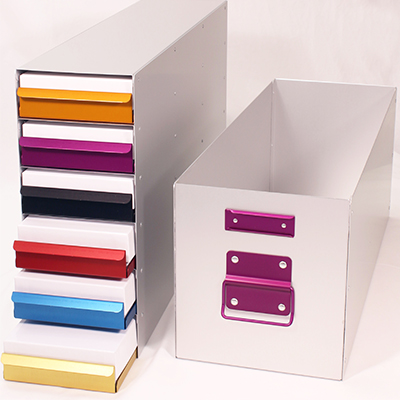
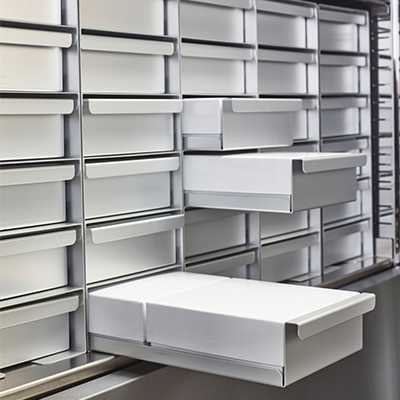
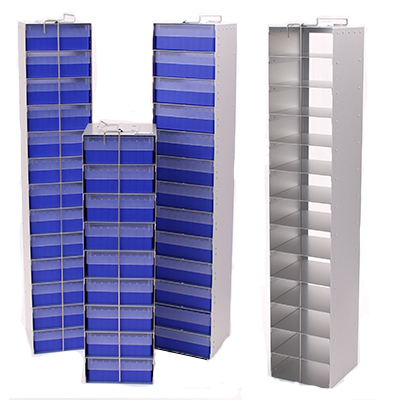
Purchasing
When buying a new laboratory freezer, request energy usage data (kW/h) from the supplier or manufacturer along with the test conditions for that data. For expensive pieces of equipment, such as ULTs, it is appropriate to consider the life-time costs. More durable and energy efficient units may be more expensive to purchase, but could end up being more economical over time—once energy use, life cycle, and maintenance costs are factored in.
For example, Stirling Ultracold’s ULT freezers offer up to 70% energy savings (compared with traditional compressor-based models) with a long 7-year warranty for the engine and thermosiphon. Whilst Liebherr’s -20°C laboratory freezers combine high performance and accurate temperature setting with energy efficient running. Both ranges are highlighted in our Sustainable Solutions microsite, if you would like more information.
Finally, there are instances when hiring a ULT freezer might be more sustainable than purchasing one, particularly if your storage requirement is short- or medium-term, or if you anticipate the need to increase the size of your freezer fairly quickly. Please contact us to discuss ULT hire options.
If you would like to find out more about our refrigeration products and services, please contact our services team: enquiries@medlinescientific.co.uk.
[1] https://www.labnews.co.uk/article/2025394/don_t_let_energy_efficiency_tie_you_in_knots
[2] https://www.medlinescientific.co.uk/sustainable-solutions/service-solutions/
[3] Case studies available on request
[4] Laboratory sustainability specialists are able to provide practical guidance and study data for the use of freezer racking (versus no racking) and how it effects performance and energy usage.

